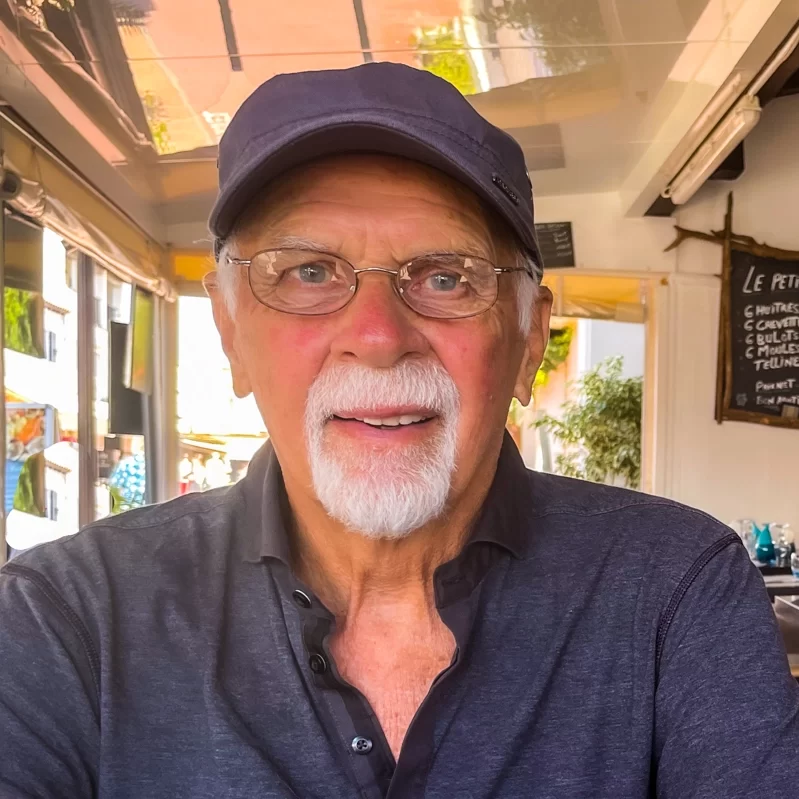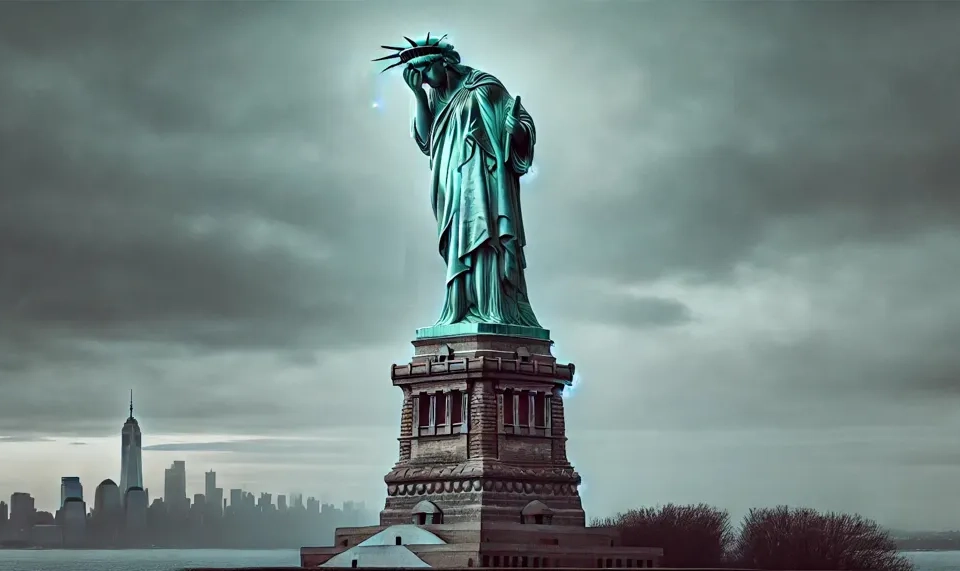Book Vibes > The Road to Unfreedom: Russia, Europe, America

Unpuzzling Democracy‘s Retreat
The Book In Brief
In The Road to Unfreedom, Snyder examines the ideological currents, historical precedents, and political manipulations that have weakened democratic institutions and norms in Europe and the United States. He examines the influence of Russian ideology, with its authoritarian worldview and Christian nationalist fervor, as a blueprint for Putin’s autocratic regime.
Armed with this ideology, Putin and his supporters have engaged in influence campaigns in the United States and Europe to destroy liberal democracies by weakening the West’s social institutions and promoting public distrust of its democratic leaders.
My review of this important book will focus on two worldviews that Snyder proposes to explain why democracy is in retreat globally and why autocracy is on the rise. Snyder calls these two worldviews:
- the Politics of Inevitability, and
- the Politics of Eternity.
The Politics of Inevitibilty
Snyder presents a worldview of “inevitability” that evolved among liberals during the 20th century. After two World Wars, the West lived through the evils of dictators with territorial ambitions, costing millions of lives and untolled economic losses. From that destruction emerged a general, perhaps unspoken, expectation that globalization, capitalism, and democracy would naturally lead to prosperity and stability. Some called this vision of the future “the end of history.”
The collapse of the Soviet Union, symbolized by the collapse of the Berlin Wall in 1989, was the capstone of liberalization, which began in earnest in the 1970s. Civil rights, the sexual revolution, and women’s liberation were social movements that transformed the culture of the United States, with more measured changes occurring in Europe.
As Snyder describes this period in history:
In the American capitalist version of this story, nature brought the market, which brought democracy, which brought happiness. In the European version, history brought the nation, which learned from war that peace was good, and hence chose integration and prosperity… Americans and Europeans kept telling themselves their tales of inevitability for a quarter century after the end of communism, and so raised a millennial generation without history (p. 7).
The Politics of Eternity
The politics of eternity describe a nationalist yearning to live perpetually in a mythical past. Donald Trump’s slogan “Make America Great Again” harkens a return to America’s 1950s when dad was at work, mom was in the kitchen, and 2.5 children were studying in school their 3Rs (reading, ‘riting, and ‘rithmetic). Life at that time was a Norman Rockwell painting of a turkey dinner served to a ravenous, multigenerational white family. Chrismas trees bedecked public school hallways for the Christian holiday.
This desire to live for eternity in an idealized past echoes the messaging of Adolph Hitler during the early days of Germany’s Third Reich. Germany in the 1930s was a time of economic and socio-cultural misery. Hitler’s campaign rhetoric and propaganda centered around themes similar to those of Trump’s, calling for the national restoration of imperial greatness and cultural tradition. Hitler’s demons were Jews, communists, and liberals. Trump has targeted immigrants, the media, and political opponents. For both leaders, the message is that only strong authoritarian leadership can restore the homeland to its former glory.
Snyder distinguishes these two political mindsets:
Inevitably, politicians spin facts into a web of well-being. Eternity politicians suppress facts in order to dismiss the reality that people are freer and richer in other countries…(p. 10).
The Collapse of Inevitability and the Rise of Eternity
Snyder attributes the lost hope in the dream of inevitable liberal values to a failure of the liberal ideal to be realized for the popular majority. The financial crisis of 2008, fueled by real estate speculation, magnified the gains of the wealthy and the plight of working-class voters. Making matters worse, after this book was written in 2018, the world confronted the COVID-19 pandemic that claimed millions of lives, especially in the U.S.
Given the string of national crises related to the environment, health, and economies, plus the constant messaging from conservative politicians eroding trust in social institutions, we have seen a loss of faith in the inevitable liberal ideal and a resurgent popular desire for a period of idealized history to be cut-and-pasted into today’s world.
Today, the dream of democracy is at great risk when the political power over societies is in the hands of autocrats. Does this risk portend the absolute death of democratic nations? Given that grim outcome, Snyder’s closing remarks have merit:
As institutions are destroyed, virtues reveal themselves. A history of loss is thus a proposal for restoration (p. 280).
The Vibe > Limitations of Snyder’s Moralistic Perspective
In summary, Snyder argues that the Western belief in the inevitable triumph of liberal democracies has clashed with a stark reality: a series of economic, health, and cultural crises have shattered this illusion. The West can no longer assume a natural, linear progression toward greater freedom. Instead, it must actively defend democracy against both external threats and internal weaknesses.
Snyder meticulously traces the historical path that has led the West to its current ideological challenges, observing that many nations worldwide are also on a similar “road to unfreedom.” This is a riveting accounting.
My primary critique of Snyder is not his analysis, but his conclusion and future vision. Despite his comprehensive examination of history, he remains optimistic that liberal values will ultimately prevail—again, the politics of the inevitable.
Snyder concludes his book with the following insight:
Only collective public policy can create citizens with the confidence of individuals. As individuals we seek to understand what we can and should do together and apart…If we see history as it is, we see our places in it, what we might change, and how we might do better. We halt our thoughtless journey from inevitability to eternity, and exit the road to unfreedom. We begin a politics of responsibility (p. 281).
Snyder’s vision of fostering a society of “citizens with the confidence of individuals” engaged in a “politics of responsibility” is undoubtedly inspiring. However, it echoes the same optimistic belief in inevitable liberal progress that is now being replaced by voters’ nostalgic yearning for the perceived glories of past societies.
We can see more clearly Snyder’s future vision of a moral society. In his most recent book, On Freedom (2024), where he writes:
Freedom requires a sense of past and future, and democracy produces political time. Democracy invites deliberation, insisting that we take the time we need to declare and accommodate values (p. 273).
I fully agree with Snyder’s assertion that democracy not only invites but requires deliberation. Yet, paradoxically, this very demand for thoughtful participation in society is accelerating our descent down the road to unfreedom.
We live in an era of overlapping crises—both genuine and exaggerated. Climate change and wars are forcing mass displacements of people from their homelands. Tragically, those displaced are often treated with contempt by individuals who remain secure in their positions. Compounding this, crises such as natural disasters, pandemics, rising living costs, and immigration challenges generate widespread fear and anger. Autocrats exploit these fears, inflating dangers to consolidate power and stoke division.
There is an old saying: “There are no atheists in foxholes.” In today’s world, it might be revised: “There are no thoughtful people in foxholes.” Times of existential uncertainty do not encourage deliberation. Fears drive people to demand immediate solutions from their governments, bypassing the slower, messier processes of democratic debate. This creates fertile ground for autocratic leaders who promise quick fixes to complex problems.
Consider the United States in 2016, when Donald Trump was elected president on the declaration: “I alone can fix it.” Four years later, he won a second term by portraying himself as a martyr of liberal elites, a savior for those who feel victimized. His rallying cry—“I am the retribution”—resonates deeply with a public consumed by fear and resentment.
I believe it will be long before nations can cultivate “citizens with the confidence of individuals” who actively engage in the “politics of responsibility.” While I respect Snyder’s spot-on analysis of our times and his vision of future freedom, his optimism about the revival of liberal democracy through deliberative politics seems beyond reach in our current reality.
The Author…
Timothy Snyder is the Richard C. Levin Professor of History and Global Affairs at Yale University and a permanent fellow at the Institute for Human Sciences in Vienna. A prominent American author specializing in the history of Central and Eastern Europe, the Holocaust, and totalitarian regimes, Snyder’s several books have been translated into over forty languages. He has appeared in over fifty films and documentaries and lives in New Haven, Connecticut.





